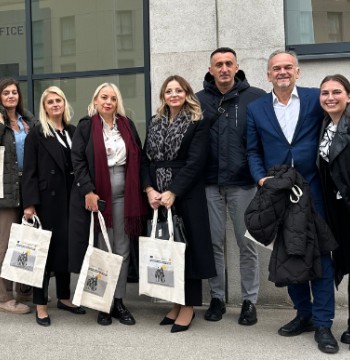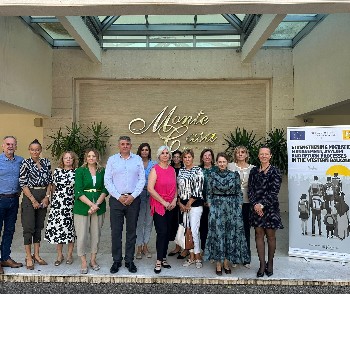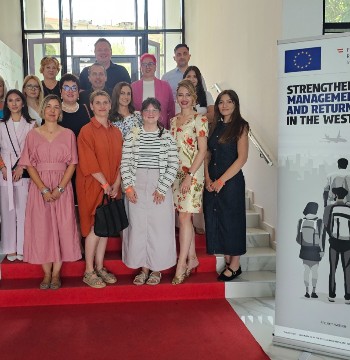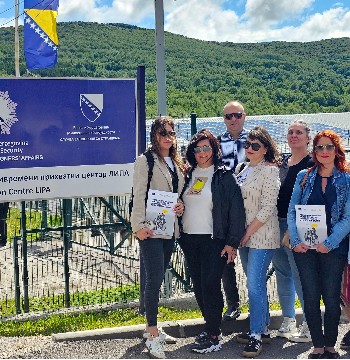Hilfswerk International successfully conducted a study visit to Slovenia and Austria
When we talk about the context of contemporary migration flows as well as challenges in the field of asylum and return management, the direct exchange of experience and practice between the countries of the European Union and the countries of the Western Balkans gains additional importance. Due to the transit role that the countries of the Western Balkans implicitly possess, cooperation on very important issues of security, asylum and return becomes crucial for the improvement of effective, humane and harmonized migration policies. Cooperation between the aforementioned actors not only contributes to strengthening the capacity of the institutions involved in the process itself, but also contributes to harmonizing approaches in dealing with each other and building mutual trust.
In this regard, Hilfswerk International, as part of the "Strengthening migration management, asylum and return processes in the Western Balkans" project, organized a five-day study visit for representatives of the Directorate for Asylum of the Ministry of Internal Affairs of Montenegro to Slovenia and Austria, in the period from April 7 to 11, 2025. Arising from previous project activities and the observed needs of regional actors for harmonizing practices in the context of migration and asylum, the study visit resulted in the improvement of operational knowledge and familiarization with the best practices in asylum procedures within the EU. When we talk about asylum, the aforementioned visit included the strengthening of institutional capacities through practical mentoring with the aim of a structured approach to asylum decision-making, along with the integration of information about the country of origin of people on the move.
In addition to the operational exchange of experiences with the Ministry of Internal Affairs of Slovenia, part of the activity included field visits to the relevant institutions and services in Slovenia and Austria. The training provided an opportunity to gain insight into the legal and procedural frameworks of the asylum system in the EU, which the representatives of Austria and Slovenia presented to the participants from Montenegro with a specific focus on efficient processing of incoming asylum requests, while minimizing processing deadlines and delays. In addition, the participants were presented ways of using adapted technology for effective case management and ensuring timely decisions for asylum seekers.
In addition to the transfer of knowledge about the way in which Slovenia and Austria maintain the credibility of their asylum systems, the visit also served as an insight into solving the problem of the potential vulnerability of persons on the move and a review of the ethical approach to migration process. Representatives of Slovenia and Austria, also shared their experiences gained in the field of international cooperation in matters of safe and dignified return, while providing support for the system of reintegration.
The aforementioned five-day study visit enabled the representatives of the security services of Montenegro to strengthen their capacity to effectively solve the challenges and questions about migration process that they encounter every day in their work. By gaining insight into the EU's best practice, the representatives of Montenegro achieved an opportunity to improve their understanding of asylum procedures, while improving the efficiency and integrity of their own asylum system by encouraging better international cooperation in matters of migration, asylum and return.
This study visit was realized as part of the project "Strengthening migration management, asylum and return processes in the Western Balkans", which Hilfswerk International implements together with the Joint Coordination Platform (JCP). The project is financed by Asylum, Migration and Integration Fund (AMIF) and the Federal Ministry of the Interior of the Republic of Austria.
More about the project: https://hwi.ba/en/projects/refugees-migrants-displaced-persons/strengthening-migration-management-asylum-and-return-processes-in-the-western-balkans/22



